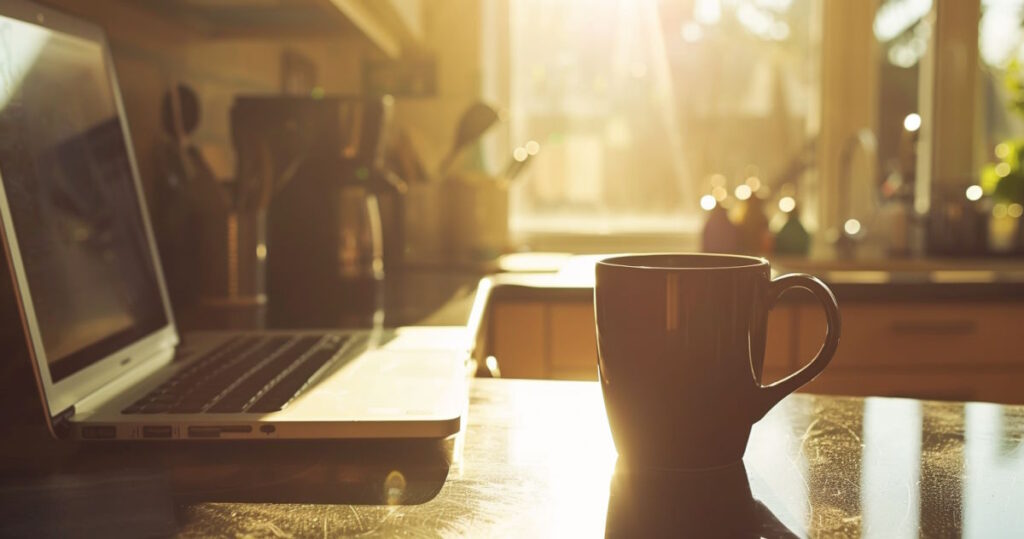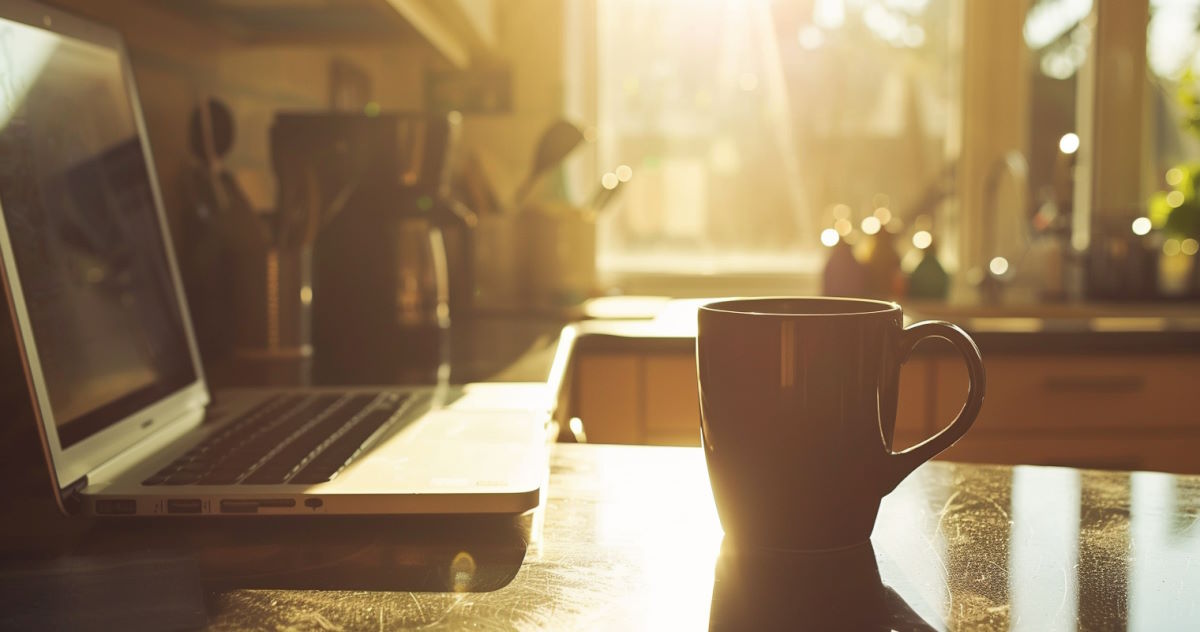
We’ve all been there — standing in the kitchen, bleary-eyed, trying to make a decent cup of coffee to start the day. But despite your best efforts, something’s not quite right. The brew is off, and you’re left wondering, “Am I doing this wrong?” The truth is, you might be falling for one of many common coffee myths that have been floating around for years.
Fear not! We’re here to debunk the most misleading coffee myths and help you fix your brew with a few clever tweaks. Before you blame the weather again, let’s explore some truths. They could transform your coffee game for the better.
Fresh Beans Always Equal Better Coffee
Experts have told us time and time again that the fresher the beans, the better the coffee, right? Not quite. While fresh beans are important, there’s such a thing as too fresh. Coffee beans need time to “degas” after roasting. This process releases carbon dioxide and settles the flavours. Brewing beans too soon results in coffee that tastes flat and lacking, as if the flavour was forgotten.
Give your beans a few days after roasting to breathe before you grind them up. Trust us, it’s worth the wait. Your morning cup will taste smoother, richer, and more satisfying. You’ll avoid the frustration of wondering what went wrong.
The Darker the Roast, the Stronger the Coffee
Some people swear that dark roast coffee is stronger than its lighter roast cousins. The logic seems sound — darker roast, bolder flavour, right? Actually, the roasting process burns off caffeine, meaning lighter roasts can pack a bigger caffeine punch. So, if you’re guzzling down dark roast thinking you’ll get more of a buzz, you might be barking up the wrong coffee tree.
Instead, if you’re after a strong cup to kick-start your day, give a lighter roast a try. You’ll be surprised by the caffeine boost and might even discover a new favourite flavour along the way.
Storing Coffee in the Fridge Keeps It Fresh
We’ve all done it — thrown the coffee bag in the fridge to “keep it fresh” for longer. Sadly, the fridge is no friend to your beans. Coffee is like a sponge, soaking up the aromas and moisture from whatever is around it. Unless you want your brew tasting like last night’s leftovers, it’s best to avoid the chilly storage solution.
For optimal freshness, keep your coffee in a cool, dry place, preferably in an airtight container. Your beans will stay fresher, longer, and your morning cup won’t come with a side of fridge funk.
Espresso Has More Caffeine Than a Regular Coffee
It’s a common misconception that espresso shots are packed with more caffeine than your regular cup of joe. The strong flavour may feel like a caffeine kick. But, a standard drip coffee has more caffeine per serving. Espresso is concentrated, but because you drink less of it, you’re actually getting a smaller caffeine dose.
If you’re in need of a serious wake-up call, stick with a larger brew. A big cup of drip coffee will give you that morning boost without leaving you wide-eyed and jittery after just a few sips.
Grinding Beans Finer Makes Stronger Coffee
Grinding your beans into a fine powder doesn’t automatically mean you’re going to end up with a stronger cup of coffee. Sure, the finer the grind, the quicker the extraction process — but this can also result in over-extracted, bitter coffee. No one wants to start their day with that!
The key is to match your grind size with your brewing method. Finer grinds work well for espresso, while coarser grinds are better for methods like French press. It’s all about balance — not just throwing your beans into the grinder and hoping for the best.
Boiling Water is Best for Brewing
It’s a cold, dreary morning, and boiling water seems like just the thing to brew a perfect, piping hot cup of coffee. But boiling water and coffee are a bad match. When water is too hot, it can scorch the coffee grounds, leading to a bitter and burnt-tasting brew. Yikes.
Instead, aim for water around 90-96°C (or just off the boil). This will extract all the good flavours from your coffee without the harsh, bitter aftertaste. And hey, maybe the British weather will cooperate with your coffee routine for once!
More Coffee Grounds = More Flavour
If you’ve ever thought, “I’ll just add a bit more coffee to make it stronger,” you’re not alone. But throwing in more grounds doesn’t necessarily give you a better or stronger brew. In fact, too many grounds can make your coffee taste overly bitter and harsh — not exactly the rich, full flavour you were hoping for.
Stick to the recommended ratio (about two tablespoons per 180ml of water) to get a well-balanced cup. It’s all about quality, not quantity, when it comes to getting that perfect coffee flavour.
Decaf Means Caffeine-Free
Surprise! Decaf coffee isn’t actually 100% caffeine-free. While decaf does contain less caffeine than regular coffee, it still packs a small dose — enough to give some people a slight jolt. So, if you’re cutting out caffeine altogether, decaf might not be the answer you’re looking for.
Instead, double-check your options or go for caffeine-free herbal tea if you’re trying to avoid even a trace of the stuff. But if you’re just looking to lower your caffeine intake, decaf can still be a solid choice without the full-blown buzz.
Coffee is Best Enjoyed Black
There’s a longstanding idea that true coffee lovers only drink it black. Anything else is considered a “cheat.” But the truth is, coffee is about enjoyment — and that means drinking it however you like. Whether it’s a splash of milk, a dollop of cream, or a sprinkle of sugar, it’s your cup to savour.
So, don’t feel bad if you’re not a black coffee purist. A little customisation can make your morning brew something truly special — after all, variety is the spice of life (or in this case, coffee)!
Instant Coffee is Just Low-Grade Coffee
We get it, instant coffee doesn’t have the best reputation. But before you write it off completely, consider this: instant coffee has come a long way in terms of quality. Many brands now use high-quality beans and better methods. So, it’s a convenient option that doesn’t skimp on flavour.
While it may never fully replace freshly brewed coffee for some, instant coffee can be a quick and satisfying option when you’re in a pinch. So, next time you’re short on time, don’t turn your nose up at it — instant coffee might surprise you.
Light Roast Coffee Tastes Sour
If you’ve ever sipped a light roast and thought, “This tastes sour,” you’re not alone. But it’s not the roast to blame — it’s likely the brewing process. Light roasts are more acidic. This can enhance fruity, bright flavours. But, poor brewing can make them taste sour or under-extracted.
To avoid that unpleasant sourness, make sure your water temperature is spot on, and don’t rush the brew. When done right, light roast coffee can be a flavourful and refreshing alternative to darker varieties.
Coffee Dehydrates You
You’ve probably heard that coffee dehydrates you, right? Well, not exactly. While caffeine is a mild diuretic (meaning it makes you pee more), coffee itself is mostly water, so it’s not likely to leave you parched. In fact, moderate coffee consumption can still contribute to your daily fluid intake.
So, sip your brew guilt-free — just don’t rely on it as your only source of hydration. Balance it out with some water throughout the day to keep things running smoothly.
You Need Fancy Equipment to Brew Great Coffee
It’s easy to believe that you need a state-of-the-art coffee machine to make a fantastic brew, but the truth is, great coffee doesn’t require fancy gear. Whether you’re using a simple French press, a humble pour-over, or even a stove-top Moka pot, you can get an amazing cup of coffee with just a few basic tools.
What really matters is the quality of your beans, water, and technique. So, save your money and get brewing with what you’ve got — your coffee game will be just fine.
Coffee Is Bad For Your Health
Let’s clear this up once and for all — coffee isn’t the villain it’s made out to be. In moderation, coffee is full of antioxidants. It can reduce the risk of health issues, like heart disease and diabetes. Of course, too much of anything can be a bad thing, but a few cups a day? Go ahead and enjoy it!
So, raise that cup and toast to the health benefits of your beloved brew. Turns out, your morning ritual might just be doing you more good than you realised.
Only Arabica Beans Make Good Coffee
Arabica beans often get all the glory, leaving their robusta counterparts in the shadows. The truth? Arabica beans are known for their smooth, complex flavours. Robusta beans have their own charm. They offer a bold, strong taste and higher caffeine. Plus, robusta is often used in espresso blends to add that extra kick we all love.
So, don’t snub robusta! It may not be as fancy, but it can hold its own in a good cup of coffee, especially if you’re after a more intense, punchy brew. Balance is key, and sometimes mixing the two can create a brew that’s perfect for your taste buds.
Conclusion
And there you have it — 15 myths about coffee, busted! How many did you fall for? Leave a comment on our Facebook page and let us know if you’ve got any more coffee myths that need debunking. Happy brewing!

